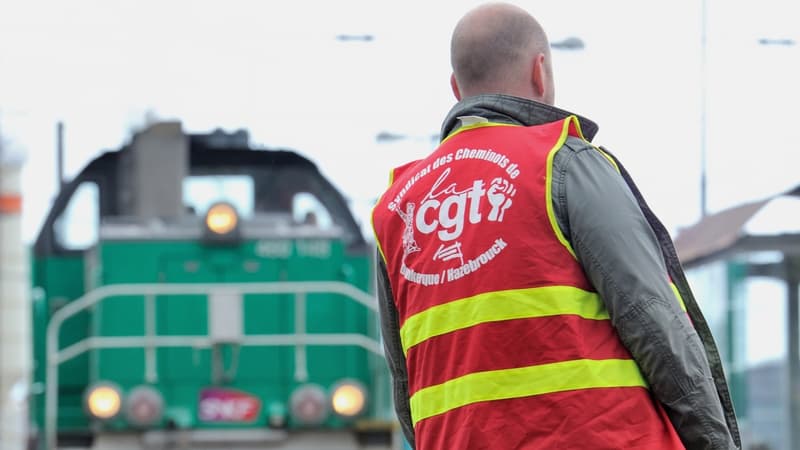The professional elections in the SNCF have not changed the balance of power in the group, but the CGT-Cheminots is back on the attack while SUD-Rail and the CFDT advance slightly, according to the results published this Friday. The CGT-Cheminots obtained 32.44% of the votes, 1.6 points less than in 2018. The first union of the public group continues its decline from ballot to ballot, since in 2004 it still weighed close to 44% of the votes and since then it has been in constant decline.
The union criticized the ballot methods, denouncing the “difficulties encountered when receiving the letters containing the identifiers and codes, the errors and ramblings of the SNCF management and the chosen service provider” to explain a result. disappointing and, above all, “a decline in overall participation.” Thus, 65.56% of the 144,429 railway workers in the group slipped a ballot into the polls compared to 66.7% in 2018, announced the SNCF. Nevertheless, the CGT was pleased to remain the first railway union and called for action “massively for the united national strike of all services on December 7 for the general wage increase.”
Unsa withdraws, SUD-Rail and CFDT advance
The second union of the group, Unsa-Ferroviaire also fell with 22.10% of the votes, 1.9 points less than four years ago. Quite the opposite of SUD-Rail, a protest union that rose 1.4 points to 18.67%. For the next negotiations, the balances remain the same: the camp of the protesters, CGT and SUD, maintain the majority against the progressives Unsa and CFDT.
“By choosing to advance in Sud-Rail, railway workers have chosen the path of social progress and their interests in the face of the challenges ahead,” the union greeted in a press release. Finally, CFDT-Cheminots, quite reformist like Unsa-Ferroviaire, also gained 1.6 points to 15.94%. The CGT-Cheminots and Unsa-Ferroviaire will therefore form 32 socioeconomic committees (CSE) out of the 33 in the group, compared to 27 for the SUD and 28 for the CFDT.
Since the 2018 reform, SNCF has been divided into five limited companies, each covering a very specific area: the network (SNCF Réseau), the trains (SNCF Voyageurs), the stations (SNCF Gares et Connexions), freight transport (Fret SNCF) and management (SNCF Holding). FO, with 7.79% of the vote, failed to cross the 10% threshold at group level and will therefore not be considered a representative, but will still be part of nine CSEs.
Source: BFM TV


